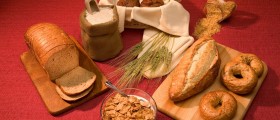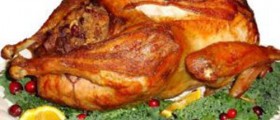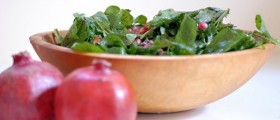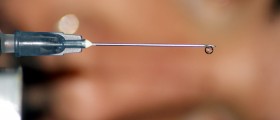
Celiac disease is an autoimmune disease that affects the small intestine. This illness occurs due to overreaction of the immune system to gluten in diet. Celiac disease is also known as celiac sprue or gluten sensitive enteropathy.
Celiac Disease Overview
Individuals affected by celiac disease cannot tolerate gluten. Gluten is a group of proteins found in wheat, rye and barley and is common ingredient found in a variety of everyday foods. The immune system of a person with celiac disease reacts by damaging the small intestine, particularly the villi when the person ingests gluten.
The villi are tiny, finger-like projections lining the small intestine. Nutrients are absorbed into the bloodstream through this part of the digestive system. Inflammation caused by celiac disease damages the villi hindering absorption of nutrients leading to malnutrition and other health problems.
It is still unknown why some people develop celiac disease but scientists believe that heredity plays an important role. Many individuals with celiac disease have family history of the disease. Celiac disease can become active for the first time in the presence of triggers such as surgery, pregnancy, delivery, viral infection or extreme emotional stress.
Symptoms of celiac disease may vary from patient to patient. It can be hard to recognize celiac disease as the symptoms are non-specific. Common symptoms of celiac disease are abdominal bloating and pain, gas, abdominal cramping, diarrhea or constipation, changes in body weight and foul smelling fatty stool.
Other symptoms of celiac disease include bone and joint pain, fatigue, weakness, depression, irritability, seizures, muscle cramps and infertility. Complications caused by malabsorption and malnutrition include anemia, osteoporosis and deficiency of vitamin K.
Celiac disease cannot be cured but the condition can be controlled with different natural and alternative remedies. Managing Celiac Disease Naturally
Gluten sensitivity and celiac disease can be easily managed with the diet free of gluten. Such diet can bring symptom relief within a few weeks. The affected individuals must avoid foods containing grains such as wheat, rye, barley, spelt, kamut, einkorn, faro and triticale. Also, many food items contain hidden gluten thus reading food labels is necessary to prevent intake of this protein.
Milk and dairy products must be avoided too since many patients with celiac disease also suffer from lactose intolerance. Once the symptoms resolve, milk and dairy products can be again gradually included in the diet.
It is recommended to undergo bone density checkup because celiac disease often leads to bone loss and osteoporosis. Due to nutrient deficiency associated with celiac disease, the patients should take vitamin and mineral supplements. Also, colostrums and other probiotics should be supplemented to promote healing of the lining of the small intestine.
To reduce inflammation of the mucosa of the intestine use fish oils, Echinacea and goldenseal.

















Your thoughts on this
Loading...